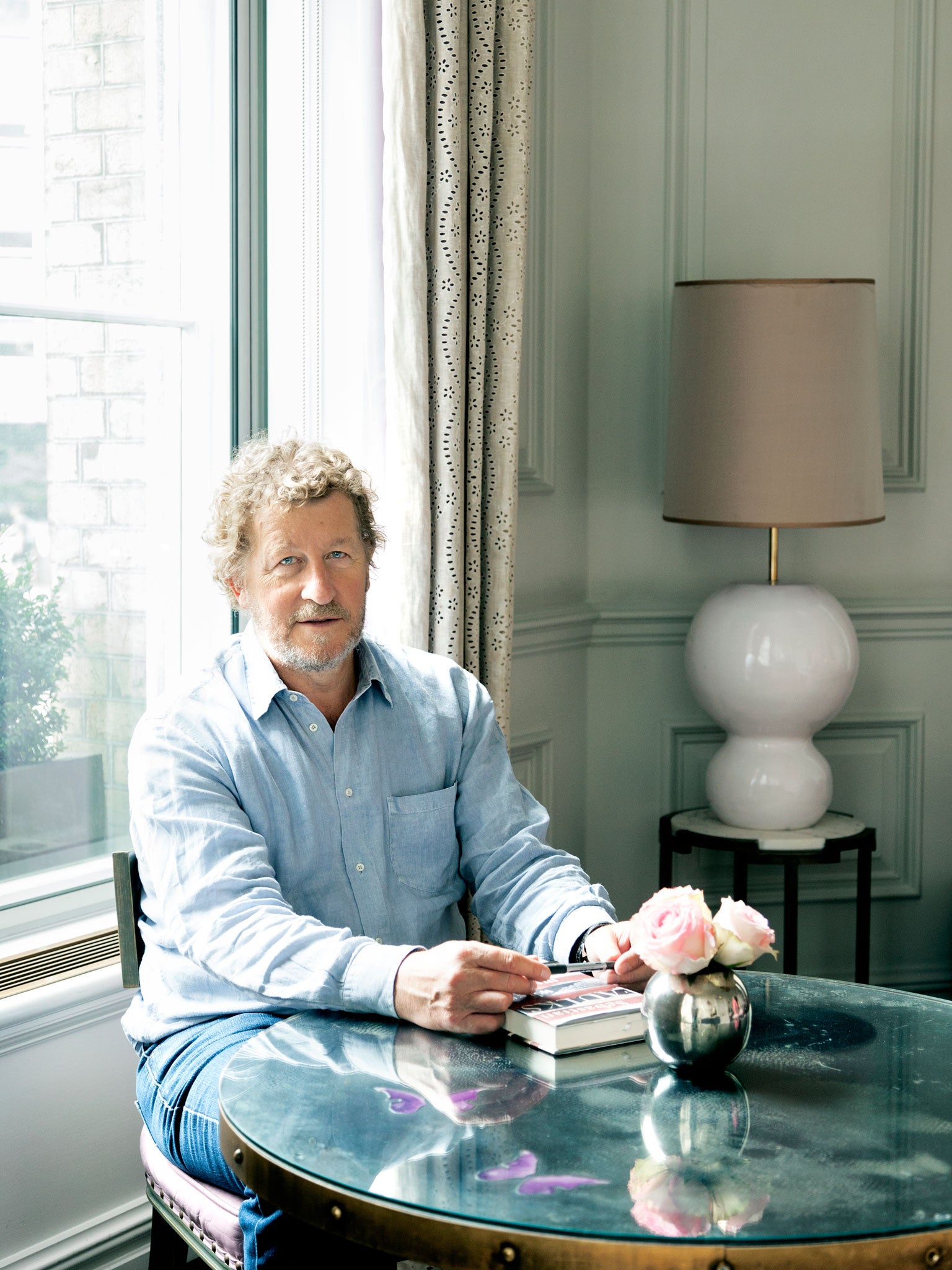Sebastian Faulks interview: The novelist on James Bond, 25 years of solitude and the perils of local radio interviews
Faulks was The Independent's founding literary editor, but left in 1991 to write novels full time. He has published more than 15 novels and returns to themes of war and love in his latest work, Where My Heart Used to Beat

Your support helps us to tell the story
From reproductive rights to climate change to Big Tech, The Independent is on the ground when the story is developing. Whether it's investigating the financials of Elon Musk's pro-Trump PAC or producing our latest documentary, 'The A Word', which shines a light on the American women fighting for reproductive rights, we know how important it is to parse out the facts from the messaging.
At such a critical moment in US history, we need reporters on the ground. Your donation allows us to keep sending journalists to speak to both sides of the story.
The Independent is trusted by Americans across the entire political spectrum. And unlike many other quality news outlets, we choose not to lock Americans out of our reporting and analysis with paywalls. We believe quality journalism should be available to everyone, paid for by those who can afford it.
Your support makes all the difference.Sebastian, you must really regret quitting your job at this newspaper.
Er, no. When I was at The Independent, and particularly on the Sunday paper, I moaned all the time about the number of meetings I had to go to, and was desperate to have time on my own in which to write books. I got it – but be careful what you wish for, because 25 years of solitude is quite a lot. The first 15 were joy and liberation. The past 10 have been tougher.
How did you cope with that?
I found other things to do – writing film scripts, which is more collaborative, or working in TV or radio, or doing voluntary work. Anything to reconnect with a normal world. Doing the Bond book in 2007 [Devil May Care], and then Wode-house [Jeeves and the Wedding Bells] two years ago was great, because I had to meet the families of both authors and it was a relief from more serious novels.
Is publicising books quite hectic?
Well I had 16 interviews this morning, all with BBC local radio. They take four to five minutes each and you do them one after the other. I try not to be repetitive, but it can be hard not to be.
Are you a reluctant salesman?
I used to be, but I found the publicist accompanying me didn't like it when I grumbled, so now I'm much more positive about it. The sad thing would be if nobody wanted to talk.
Your new book is about an author and psychiatrist but really it's about the 20th century, right?
Yes, I hope the reader will be made to consider the extraordinary nature of the century that we have just lived through, while at the same time having the enjoyment of getting to closely know one entirely imaginary human being.
Was it daunting to revisit WW1 more than 20 years after Birdsong?
I think there's a danger that you think, I've done this before, I can knock it off without re-inhabiting that world fully. I didn't do that. I went back and reread a lot of things and thought about it hard.
Birdsong launched your career. Has it been difficult to work in its shadow?
I was 40 when it came out and 45 by the time it had sold a lot. I had kids and a mortgage, so it wasn't like being a popstar with a hit record at 21. Other books of mine have been better, and others more challenging, but if you think of your career as a train of carriages, it's no bad thing to have a locomotive at the front.
Back to Bond. Do you have a view on the whole Idris Elba hoo-ha?
No, not really. To me Connery was always the guy.
Might your book get the film treatment?
I would love it if it did but I suspect it won't, not least because it's set in the 1960s. That said, it deals with Iran, Russia and issues that are still relevant, such as drug trafficking, so it could be updated.
Debrett's lists your recreational interests as "tennis and wine" only. Is that up to date?
Ha. Well I'd given up cricket and I've since take it up again, so it should be updated. About three years ago I joined the Authors XI. They last played in about 1911 but have been reinvented, and it's enormously good fun. Everyone in the team has to have had a book published.
Who are your top players then?
Our best player is probably Nicholas Hogg, who has just published a fine novel called Tokyo. Richard Beard, who wrote the The Acts of the Assassins, is a good batsman, but you might have heard more of Tom Holland, the historian, who is a rather idiosyncratic cricketer.
What do you bring to the team?
Good question. I can still bat a bit but I'm not a very agile fielder any more. But I bring humour.
Biography
In 1991, Sebastian Faulks left The Independent, where he had started as its founding literary editor, to write novels full time. He published Birdsong, set in wartime France, two years later, and it went on to sell more than three million copies and features on several polls of Britain's favourite books. He has published more than 15 novels and returns to themes of war and love in his latest work, Where My Heart Used to Beat. He lives in London with his wife and has three children in their twenties.
Join our commenting forum
Join thought-provoking conversations, follow other Independent readers and see their replies
Comments